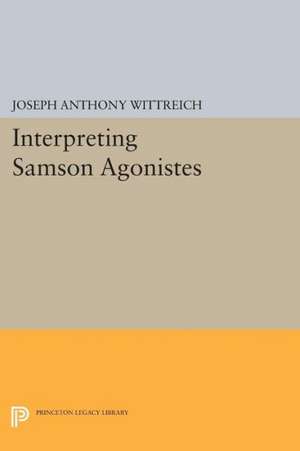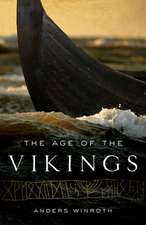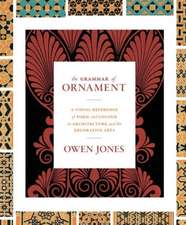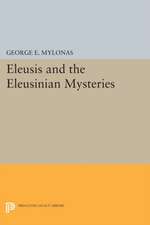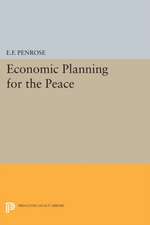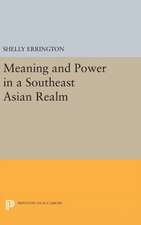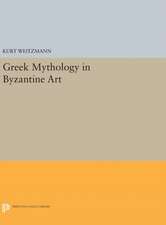Interpreting Samson Agonistes: Princeton Legacy Library
Autor Joseph Anthony Wittreichen Limba Engleză Paperback – 30 iun 2014
| Toate formatele și edițiile | Preț | Express |
|---|---|---|
| Paperback (1) | 427.97 lei 6-8 săpt. | |
| Princeton University Press – 30 iun 2014 | 427.97 lei 6-8 săpt. | |
| Hardback (1) | 1011.77 lei 6-8 săpt. | |
| Princeton University Press – 18 apr 2016 | 1011.77 lei 6-8 săpt. |
Din seria Princeton Legacy Library
-
 Preț: 437.79 lei
Preț: 437.79 lei -
 Preț: 172.27 lei
Preț: 172.27 lei - 16%
 Preț: 683.63 lei
Preț: 683.63 lei - 16%
 Preț: 2324.11 lei
Preț: 2324.11 lei -
 Preț: 376.99 lei
Preț: 376.99 lei - 23%
 Preț: 780.26 lei
Preț: 780.26 lei -
 Preț: 377.31 lei
Preț: 377.31 lei -
 Preț: 313.18 lei
Preț: 313.18 lei - 16%
 Preț: 882.80 lei
Preț: 882.80 lei - 16%
 Preț: 736.40 lei
Preț: 736.40 lei - 16%
 Preț: 860.09 lei
Preț: 860.09 lei -
 Preț: 362.12 lei
Preț: 362.12 lei -
 Preț: 223.24 lei
Preț: 223.24 lei -
 Preț: 363.10 lei
Preț: 363.10 lei - 16%
 Preț: 915.48 lei
Preț: 915.48 lei -
 Preț: 340.22 lei
Preț: 340.22 lei - 16%
 Preț: 835.12 lei
Preț: 835.12 lei -
 Preț: 266.84 lei
Preț: 266.84 lei -
 Preț: 317.65 lei
Preț: 317.65 lei -
 Preț: 329.09 lei
Preț: 329.09 lei -
 Preț: 265.73 lei
Preț: 265.73 lei -
 Preț: 260.54 lei
Preț: 260.54 lei -
 Preț: 314.84 lei
Preț: 314.84 lei -
 Preț: 402.66 lei
Preț: 402.66 lei -
 Preț: 464.18 lei
Preț: 464.18 lei -
 Preț: 351.09 lei
Preț: 351.09 lei -
 Preț: 483.81 lei
Preț: 483.81 lei - 19%
 Preț: 500.29 lei
Preț: 500.29 lei -
 Preț: 388.44 lei
Preț: 388.44 lei -
 Preț: 328.48 lei
Preț: 328.48 lei - 23%
 Preț: 742.04 lei
Preț: 742.04 lei -
 Preț: 372.92 lei
Preț: 372.92 lei -
 Preț: 328.70 lei
Preț: 328.70 lei - 19%
 Preț: 505.89 lei
Preț: 505.89 lei -
 Preț: 446.25 lei
Preț: 446.25 lei -
 Preț: 289.17 lei
Preț: 289.17 lei - 19%
 Preț: 575.53 lei
Preț: 575.53 lei -
 Preț: 447.20 lei
Preț: 447.20 lei -
 Preț: 484.19 lei
Preț: 484.19 lei -
 Preț: 271.12 lei
Preț: 271.12 lei -
 Preț: 314.46 lei
Preț: 314.46 lei -
 Preț: 362.51 lei
Preț: 362.51 lei -
 Preț: 307.07 lei
Preț: 307.07 lei - 19%
 Preț: 498.46 lei
Preț: 498.46 lei -
 Preț: 272.27 lei
Preț: 272.27 lei - 19%
 Preț: 458.44 lei
Preț: 458.44 lei -
 Preț: 406.20 lei
Preț: 406.20 lei - 19%
 Preț: 515.73 lei
Preț: 515.73 lei -
 Preț: 428.88 lei
Preț: 428.88 lei -
 Preț: 369.27 lei
Preț: 369.27 lei
Preț: 427.97 lei
Preț vechi: 528.36 lei
-19% Nou
Puncte Express: 642
Preț estimativ în valută:
81.89€ • 87.57$ • 68.28£
81.89€ • 87.57$ • 68.28£
Carte tipărită la comandă
Livrare economică 17 aprilie-01 mai
Preluare comenzi: 021 569.72.76
Specificații
ISBN-13: 9780691611099
ISBN-10: 0691611092
Pagini: 430
Ilustrații: black & white illustrations
Dimensiuni: 161 x 235 x 22 mm
Greutate: 0.6 kg
Editura: Princeton University Press
Seria Princeton Legacy Library
ISBN-10: 0691611092
Pagini: 430
Ilustrații: black & white illustrations
Dimensiuni: 161 x 235 x 22 mm
Greutate: 0.6 kg
Editura: Princeton University Press
Seria Princeton Legacy Library
Descriere
Descriere de la o altă ediție sau format:
Joseph Wittreich reveals Samson to be an intensely political work that reflects the heroic ambitions and failings of the Puritan Revolution and the tragic ambiguities of the era. He sees in the work not the purveyance of Medieval and early Renaissance typological associations but an interrogation of them and a consequent movement away from them. O
Joseph Wittreich reveals Samson to be an intensely political work that reflects the heroic ambitions and failings of the Puritan Revolution and the tragic ambiguities of the era. He sees in the work not the purveyance of Medieval and early Renaissance typological associations but an interrogation of them and a consequent movement away from them. O
